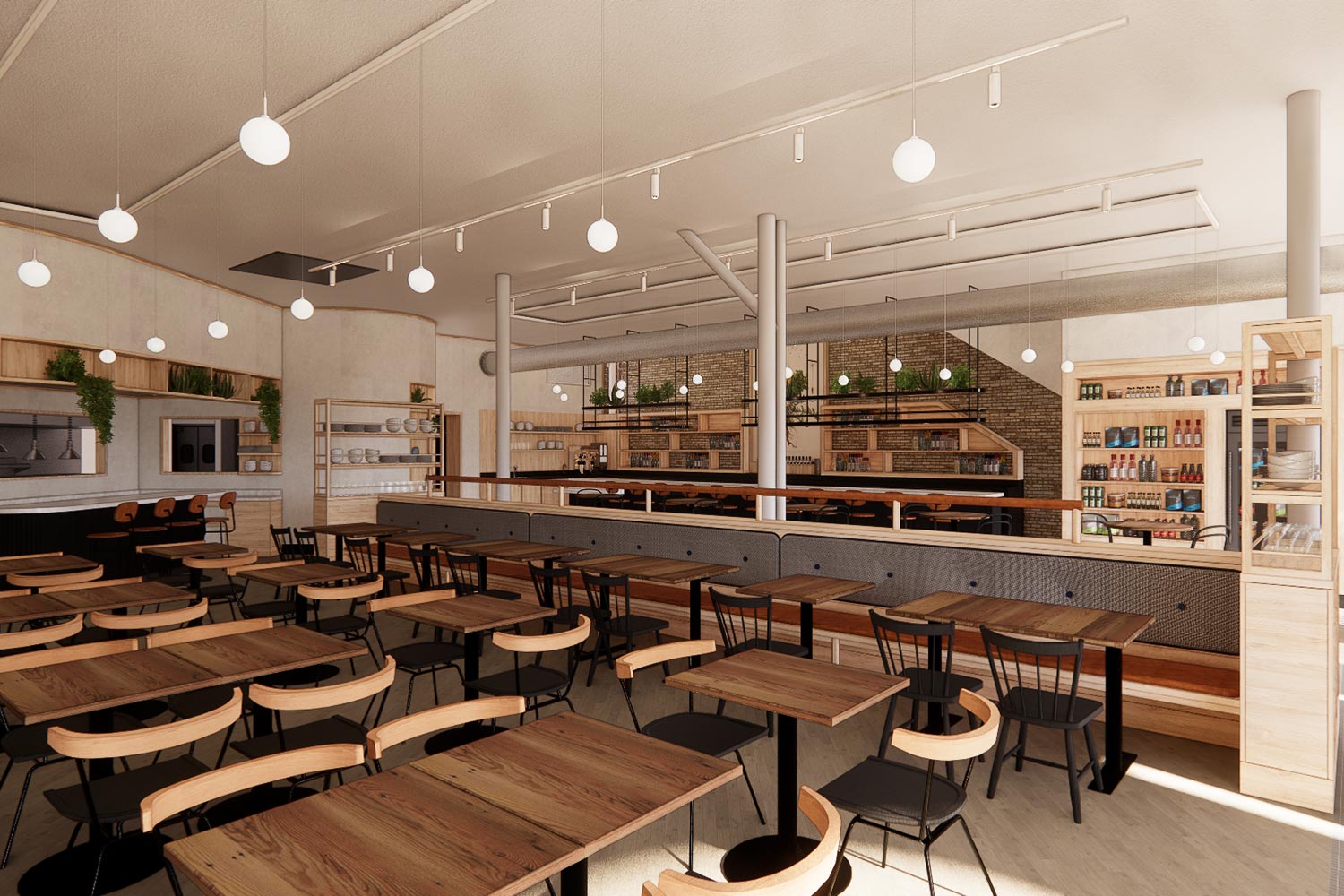Like most restaurateurs, when March of 2020 came around, Daisies’s chef Joe Frillman was faced with some tough choices. Obviously, due to COVID, his acclaimed restaurant couldn’t continue as normal. But he also was determined not to lose his staff. “The guy who makes our pasta has been working with me for 14 years; we can’t just lay everyone off. How do we get this core group of people some work?” Frillman asked himself at the time. That determination led to a successful pivot during COVID to a combination farmers market and grocery store. Now, that market is becoming permanent.
Frillman’s brother owns a farm in Michigan (for Green City Market fans, it used to be Leaning Shed Farms before the previous owners retired) and once COVID hit, he was also out of luck — farmers markets and restaurant clients instantly dried up. Daisies transformed from restaurant into market, and was an instant hit. “The first day we opened up, there was a line down the block in the pouring rain,” remembers Frillman. “Mick Klug brought fruit, my brother brought vegetables, other farmers brought meat and cheese, and chefs from the industry brought other products.” Soon after, the restaurant started a lunch program with sandwiches, and began making some of their own grocery products.
While most of these COVID adjustments were temporary, Frillman decided there was an opportunity here. That’s why, starting this winter, the original Daisies is closing to make room for a permanent market, café, and bar. The original restaurant is moving to a much larger space nearby.
Why open a grocery store? Lots of reasons. First, the demand is clear — neighbors show up multiple times a week now, instead of just once in a while for dinner. Second, it gives him the ability to give his staff new experiences and opportunities. “Our staff did everything; they stocked shelves, worked checkout, it wasn’t just being a cook anymore,” explains Frillman. “That opened up a lot of options; people got to dabble in things they don’t normally get to do. You learn different skill sets; cooks who have no guest interaction are selling people stuff at a register.” It also helped create a neighborhood gathering spot. “If we have a market or a CSA, it becomes a neighborhood place where you see the same people, their families. It’s community building, and it’s really inspiring.”
Finally, opening the market will provide Frillman with the opportunity to try some new and exciting things. For example, he plans to start a version of a CSA with the same local produce that comes into the store, but that can also be paired with pasta from Daisies or goodies from local producers. He wants to expand the restaurant’s fermentation program into a line of retail products, and offer meal kits for home chefs. The market will also give Daisies the production space to sell products at farmers markets around the city, which he sees as free advertising. Expect the lunch program to continue — you can grab a sandwich while you shop — and Frillman wants to also offer cocktails and other drinks in the evening so people can gather. He says, “I’ve been cooking for 20 years, and I haven’t had this kind of excitement around a project in a long time.”



